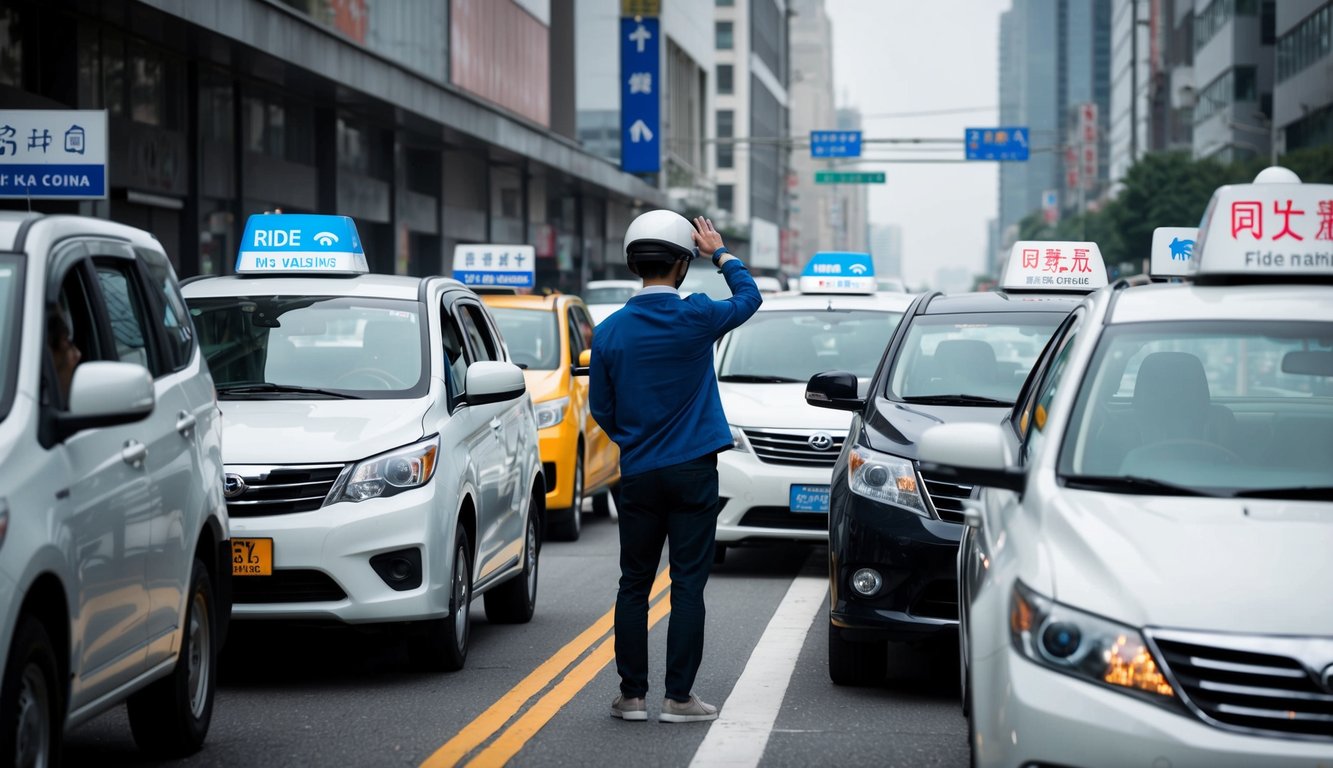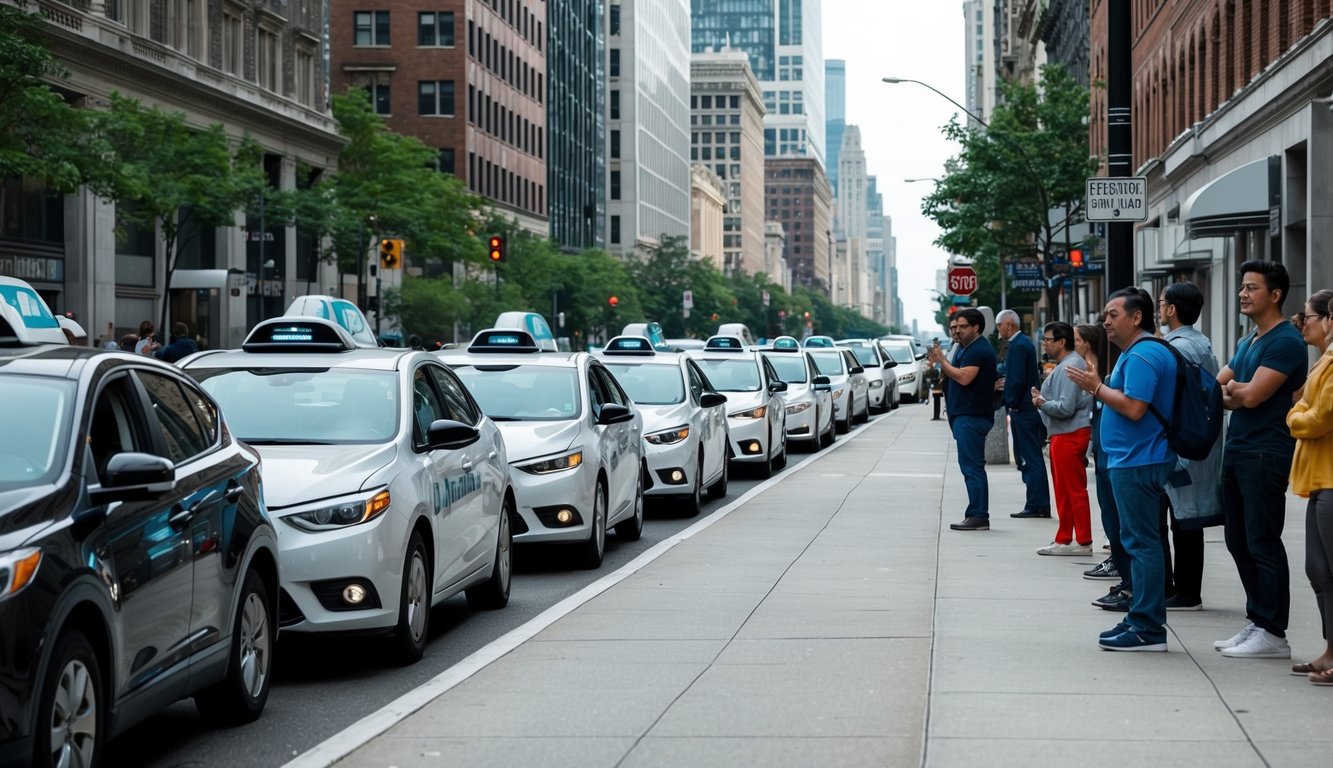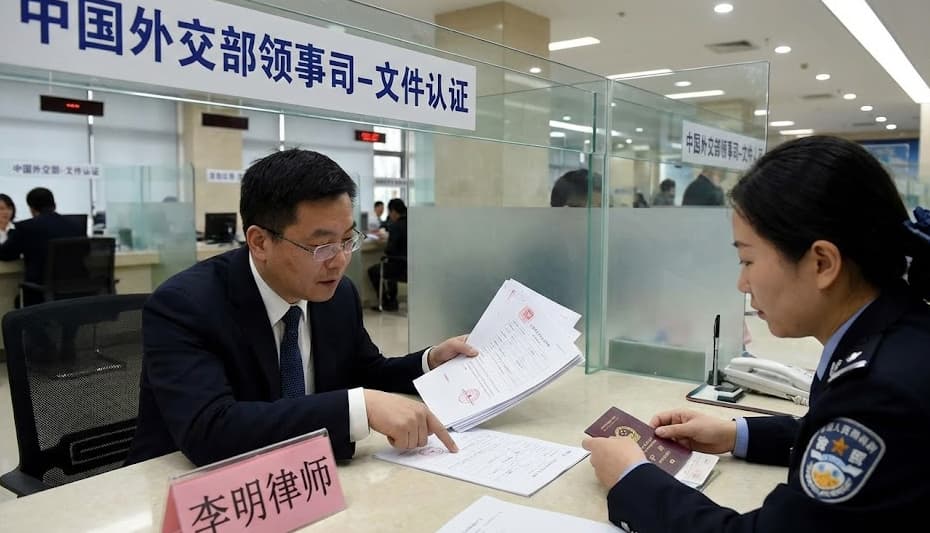Ride hailing fraud in China has become a major headache for apps, drivers and riders alike. Sneaky tricks like fake GPS locations and fare-boosting software are costing the industry millions.
Some drivers use special apps to make trips seem longer, while others team up with fake passengers to cash in on bonuses.
Police in cities like Shanghai and Beijing are now hunting down these scammers, with hundreds of arrests already made.
Want to know how to spot these scams and protect yourself when using ride apps in China? Read on to discover the tricks, the consequences, and what you can do to stay safe.
What Is Ride Hailing Fraud in China?
Ride hailing fraud in China involves deceptive practices that hurt both riders and legitimate drivers. These scams take different forms and have become a serious concern for ride-hailing companies.
How Big Is the Problem and Which Apps Are Affected
Fraud in China's ride-hailing sector has grown into a major issue. The problem affects many popular apps in the country.
In Beijing alone, authorities have identified numerous ride-hailing accounts involved in scams. Some drivers use special fraud software to cheat the system. This software can fake GPS locations or create fake rides. When drivers do this, they earn money without actually giving rides to real people.
The problem has made honest drivers angry. They work hard following the rules while others cheat to make more money.
China's ride-hailing market is very competitive. This competition might make some drivers turn to fraud to earn more. Both small companies and big ones like Didi face these problems. Chinese regulators are taking action.
The Cyberspace Administration of China has stepped in to address security concerns in the industry.
How Fraud Happens in Chinese Ride Hailing
Fraud in China's ride-hailing industry takes many forms and causes serious problems for companies and honest drivers. Both drivers and passengers can cheat the system in creative ways.
Tricks Drivers Use to Cheat the System
Some drivers use special fraud software to boost their earnings unfairly. They might accept a ride but never actually pick you up. The app shows the trip happening, but it's fake. Your account gets charged, but no car ever arrives.
Other drivers swap SIM cards to create multiple fake accounts. With these accounts, they can take fake rides over and over.
In one Chinese city, about half of all rides were actually fraud! Some drivers also use GPS spoofing tools. These make it look like they drove a longer route than they really did. This means you pay more money for a shorter trip.
Companies like Didi Global have been fighting these scams. But new tricks keep popping up as drivers find ways around the rules.
Passenger Scams and Organized Cheating Rings
It's not just drivers who cheat - passengers and fraud rings cause problems too. Some people use stolen Uber accounts to book rides they never pay for. This hurts the real account owners and the companies. Organized fraud rings operate on a bigger scale.
They might work with dozens of drivers and fake passengers. Together, they create hundreds of fake trips each day. These scams can steal millions from ride-hailing companies. Some rings use stolen credit cards to pay for rides.
Others create fake promotions that look real. You might get a message about a special discount that's actually a scam to steal your payment info. Companies now use AI systems to spot unusual patterns and block fraudsters.
Who Pays the Price for Ride Hailing Fraud in China?
Ride hailing fraud affects multiple parties in China's transportation ecosystem. The financial impact ripples through the system, hitting companies and customers alike.
Money Lost and How It Hurts Regular Users
When drivers use fraudulent methods in ride hailing apps, you end up paying more. In China, companies like Didi Kuaidi (now known as Didi) have fought against drivers who use special software to manipulate fares.
According to search results, fraud made up about 3% of Uber's rides in China during 2015 - that's around 30,000 daily rides! This fraud makes your trips cost more.
When drivers create fake trips or artificially inflate distances, the companies lose money. They then raise prices for everyone to cover these losses. You might also face safety risks. Fraudulent accounts may not have proper background checks.
This puts your personal security at risk when you use these services. Some drivers might refuse short trips or cancel rides to chase higher fares. This makes the service less reliable for you, especially when you really need a ride.
Combating Ride Hailing Fraud in China
China is taking strong steps to fight cheating in ride hailing apps. Both the government and companies like Didi Chuxing are working to stop drivers who use tricky software or fake GPS locations.
What Chinese Police and Regulators Are Doing
Chinese authorities have started major investigations into ride-hailing fraud. They're looking closely at drivers who use special software to make fares bigger. This type of cheating hurts both passengers and honest drivers. Police are working with tech experts to find the people who make these fraud tools.
In some cities, they've even created special teams just for this problem. The government has told all ride-hailing companies to fix security problems. They must check driver identities better and watch for unusual patterns. Companies that don't follow these rules can get big fines or even lose their business license.
Regulators also want more reporting of problems. They're asking passengers to tell them about suspicious rides or strange prices.
How Apps Like Didi Are Trying to Stop Cheaters
Didi Chuxing, backed by Tencent, leads the fight against fraud on its platform. They've built smart systems that can spot fake GPS signals when drivers try to make trips seem longer.
The company uses artificial intelligence to check if a trip's route makes sense. If you take a ride that seems too long or goes in strange circles, their system will flag it for review.
Didi has also added more safety features to protect you from fake drivers. They now require facial recognition before each shift starts. This helps make sure the person driving is really who they claim to be. The app shows you your driver's photo, license plate, and ratings before they arrive.
You should always check these details before getting in the car. Didi has created a special team that only works on stopping fraud. They watch for new cheating methods and quickly update their protection systems.
Staying Safe When Using Ride Hailing in China

Ride hailing apps in China offer convenient transportation, but users need to be aware of potential risks. Taking a few precautions can help you avoid scams and ensure a safe experience.
Simple Tips to Avoid Getting Scammed
- Always check the driver's identity and car details before getting in. The app shows you the driver's photo, name, and license plate number.
- Make sure they match what you see in real life. Share your trip details with someone you trust. Most ride hailing apps have a "share trip" feature. Use it so friends or family can track your journey.
- Watch out for fake drivers. Never accept rides from people who approach you claiming to be your driver. Your legitimate driver will find you through the app. Be suspicious of drivers who ask you to cancel and pay cash instead. This is often a scam to avoid platform fees or charge you more. Check your receipt carefully after rides.
- Look for unexpected cleaning fees or toll charges. If something seems wrong, use the app's dispute button right away.
- Keep your personal information private. Don't share unnecessary details with drivers during your ride.
- Consider using well-established platforms like DiDi, which have improved safety features after past incidents prompted increased regulation.
Conclusion
Ride hailing fraud in China is an ongoing battle between scammers and security systems. While Didi and competitors fight back with AI and monitoring tools, fraudsters constantly adapt their tricks. Thankfully, government crackdowns and stronger security measures are making progress.
Stay safe by checking routes, comparing prices, and reporting suspicious activity. The future looks brighter as awareness grows, but fraud tactics evolve quickly.
If you've been victimized or need specific legal guidance about ride hailing issues in China, consult with a China Legal Experts who understand the local regulations and can help protect your rights.
Also, if you're planning business travel to China, we recommend reading our article: Do I Need a Work Permit for a Business Trip to China?
Frequently Asked Questions
Is there a ride-hailing service in China?
Yes, China has several ride-hailing services. DiDi is the largest and most popular option.
It controls most of the market after acquiring Uber China in 2016. Other ride-hailing companies in China include Cao Cao Mobility, T3 Travel, and Yidao. These competitors hold smaller market shares but still operate in major cities.
How big is the ride-hailing market in China?
China has the world's largest ride-hailing market. It serves hundreds of millions of users across the country.
By 2025, the Chinese ride-hailing market is expected to be worth over $50 billion. DiDi alone completes billions of trips each year with tens of millions of daily rides. The market continues to grow despite challenges like fraud and regulatory changes.
What are Ubers called in China?
In China, there is no Uber as you might know it in other countries. The service that most closely resembles Uber is DiDi.
DiDi offers similar features to Uber with options for private cars, taxis, and carpooling. Many Chinese people simply refer to ride-hailing services generically as "DiDi" regardless of which company they're using.
Is Uber blocked in China?
Uber is not technically blocked in China, but it no longer operates independently there. In 2016, Uber sold its Chinese operations to DiDi after an expensive price war.
As part of the deal, Uber received a stake in DiDi. This means you cannot use the international Uber app in China. Travelers must switch to DiDi or other local services instead.
Can tourists use DiDi in China?
Yes, tourists can use DiDi in China. The app has an English version that makes it accessible to international visitors.
To use DiDi as a tourist, you'll need to download the app and create an account. You can link an international credit card for payment.
Having a local phone number helps but isn't always required. Some tourists report occasional issues with using foreign payment methods or verifying accounts.
Subscribe to receive updates
Subscribe to receive the latest blog posts to your inbox every week.






